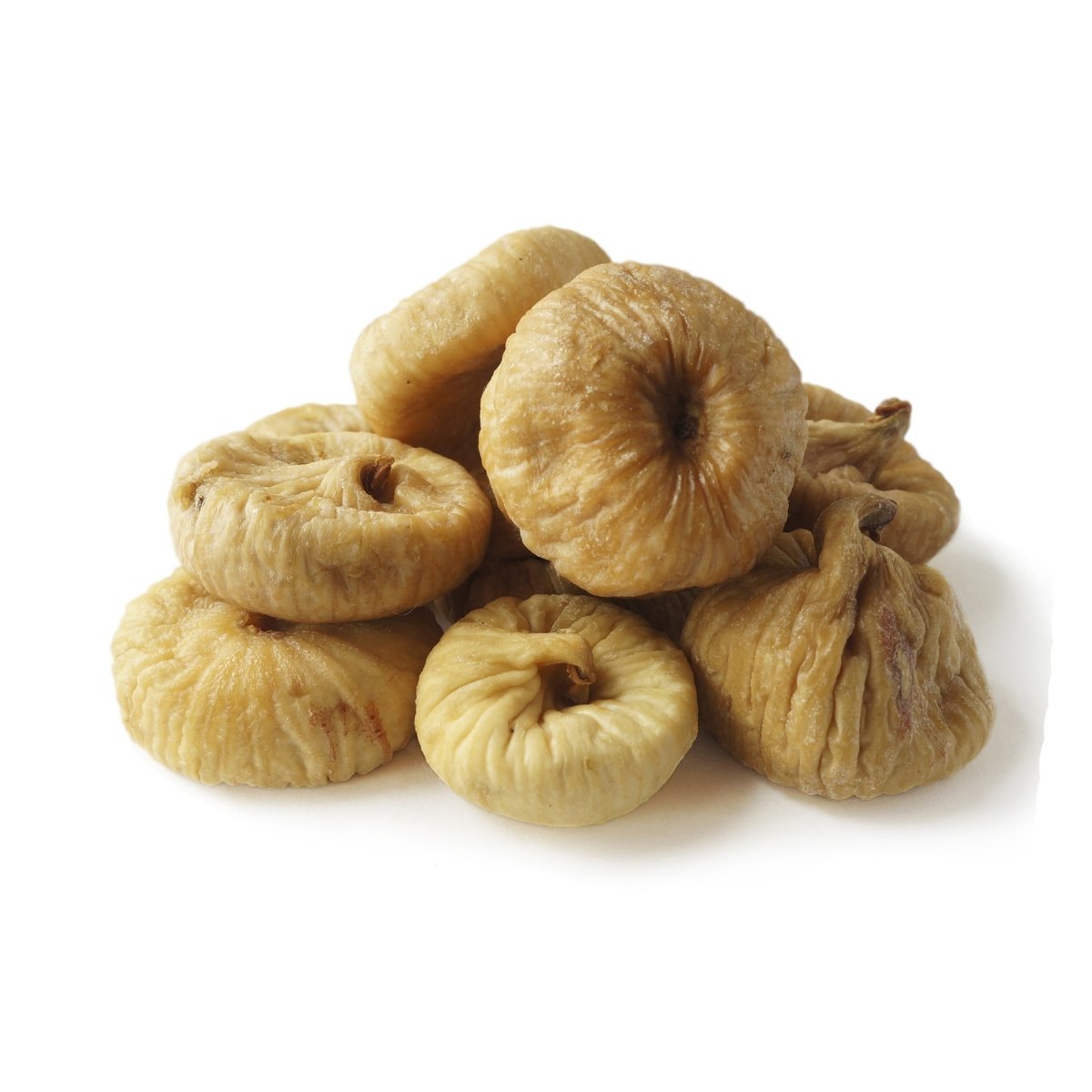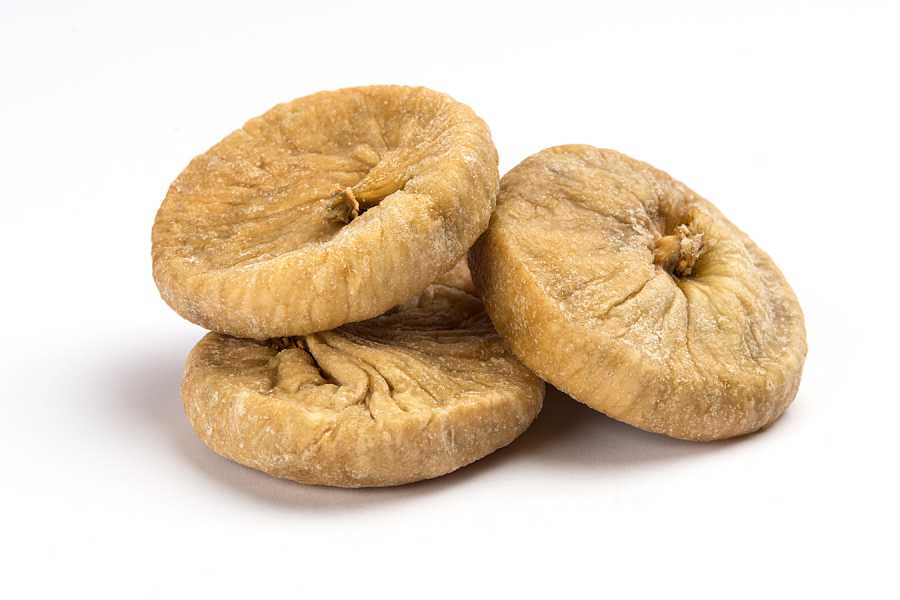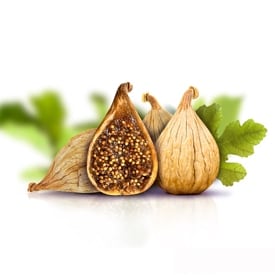Description
Figs are a unique fruit resembling a teardrop. They’re about the size of your thumb, filled with hundreds of tiny seeds, and have an edible purple or green peel. The flesh of the fruit is pink and has a mild, sweet taste. The scientific name for the fig is Ficus carica.
Figs — and their leaves — are packed with nutrients and offer a variety of potential health benefits. They may promote healthy digestion, decrease your risk of heart disease, and help you manage your blood sugar levels.
Turkish figs have a sweet flavor, similar to a mix of apples and pears, with a chewy texture different from most other fruits. Turkish figs are available in several sizes, ranging from small to extra large, and are sold either fresh or dried. A single extra-large fresh Turkish fig -- at around 3 1/2 inches in diameter -- contains moderate levels of nutrients for a light snack.
Serving Size
A fresh, extra-large Turkish fig weighs around 2.75 ounces, while its dry counterpart weighs about 0.85 ounces. A single serving is typically one extra-large Turkish fig, but given the healthful nature of the fruit, eating a second one will not ruin your day’s diet. Select Turkish figs, whether dried or fresh, with no added ingredients to avoid unnecessary sugars and chemical preservatives.
Calories and Protein
Each extra-large Turkish fig contains 60 calories. A typical daily recommended calorie intake for a healthy adult is 2,000. Based on that figure, each fig is 3 percent of your daily calories. Sweetened Turkish figs of the same variety can have as much as three times the amount of calories. Keeping calorie intake reasonable is the most important part of weight management. The protein in an extra-large Turkish fig is less than 1 gram. A healthy daily protein intake is around 46 grams for a woman and 56 grams for a man.
Fat, Carbohydrates, Dietary Fiber and Cholesterol
The fat content of each extra-large Turkish fig is less than 0.5 grams, with less than 0.1 grams of saturated fat. A health daily allowance is 44 grams of fat and 16 grams of saturated fat, based on a 2,000-calorie diet. Each serving also contains 15 grams of carbohydrates -- a typical daily intake is 225 grams. The dietary fiber is notably high at 3 grams per fig. Adult women need between 22 and 28 grams of fiber and men between 28 and 34 grams daily, according to MayoClinic.com. There is no cholesterol in a Turkish fig, no matter the size. A diet low in fat and cholesterol reduces the risk of cardiovascular disease, some types of cancer and stroke.
Vitamins and Minerals
The notable mineral content in an extra-large Turkish fig is its 187 milligrams of potassium -- an intake of 500 milligrams daily keeps your muscles healthy and helps prevent stroke. Aside from that, Turkish figs are not rich in vitamins and minerals, but do contain trace amounts of thiamin, riboflavin, folate and vitamins C, B-6, A, E and K. Including Turkish figs in your diet contributes to your overall daily intake of these nutrients, which benefit health and well being.
Payment & Security
Payment methods
Your payment information is processed securely. We do not store credit card details nor have access to your credit card information.
Security


